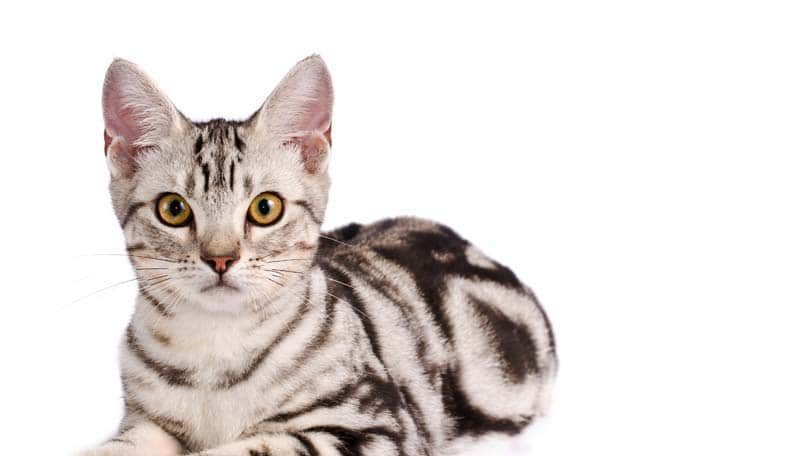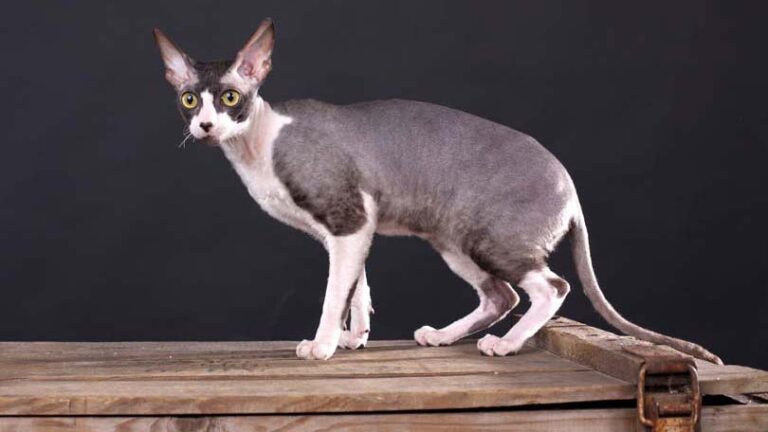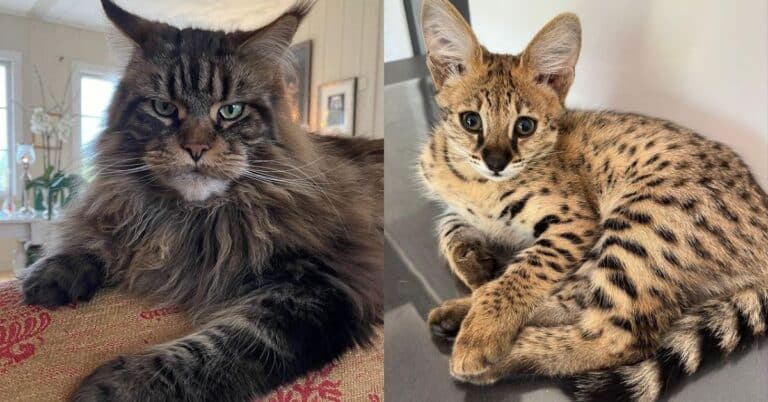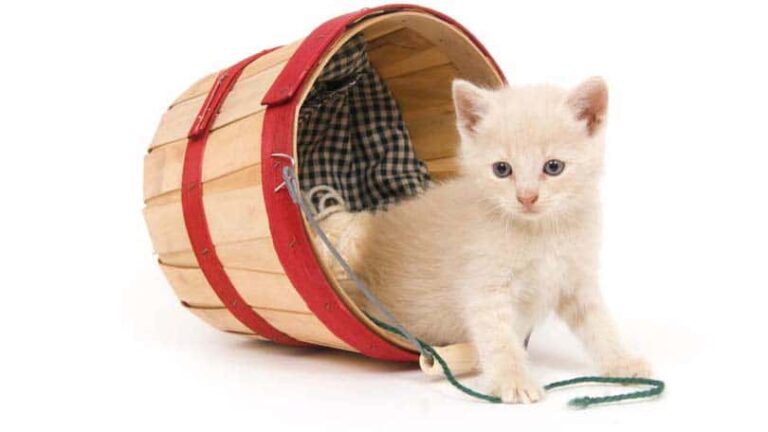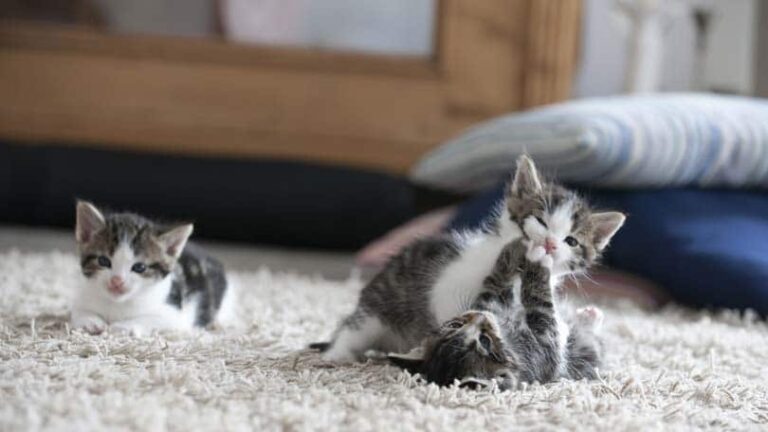How Long Do Cats Live?
There are many factors that can affect the life expectancy of a cat. Some are related to the care the pet receives while others involve issues over which her caretakers have no control.

So how long do cats live?
In general, terms, when considering how long cats live, the life expectancy of a domesticated indoor cat is 12-18 years. The life expectancy of an outdoor cat is significantly shorter at only 4-5 years.
Outdoor Cats
Outdoor cats face many more dangers than those that are kept indoors. This is why it is recommended that cats kept as pets not be allowed outside. The life expectancy of an outdoor cat is slashed by more than half for a reason.
Many outdoors cats are killed in accidents, such as getting hit by a car. Others are attacked and killed by other animals.
Outdoor cats – even those that do not spend all of their time outdoors – are much more likely to come in contact with viruses and with other animals that have a communicable disease.
Indoor Cats Will Live Longer
Indoor cats have much less opportunity to be hurt in an accident. They also have less risk of coming in contact with diseases, but they still need to get all of their vaccinations .
Even cats that never go outdoors can contract various diseases that are preventable through vaccinations.
Whether your cat is an indoor cat or an outdoor cat, how long cats live often will have much to do with the care it receives. Here are some things that a pet owner can do to help ensure that their pet lives a long and healthy life.
The first piece of advice would be to try and keep your cat indoors. As stated above, the life expectancy for an indoor cat is more than double that of an outdoor cat. It may not always be possible to keep your cat indoors, so the here are some measures to take when caring for an outdoor cat.
Do Not Declaw
Some cat owners have made the mistake of sending their declawed cat outdoors. This is not a good idea as the cats claws are its only real form of defense against other animals. A cat with no claws cannot defend itself should another animal attack. For that reason, a declawed cat should never be let outside.
Have the Cat Spayed or Neutered
Cats that are spayed or neutered will tend to stick closer to home. The closer the cat stays to home, the less danger it will find itself in. Another benefit to having an outdoor cat spayed or neutered is that the cat will tend to be less aggressive. That will mean less fighting with other animals and less of a chance to be seriously injured in such fights. (As a side note: Outdoor cats should always be fixed, even without thought for the health benefits. When an intact cat is allowed to roam free, the result will be more kittens born with no place to call home.)
Check the Weather
If you live in a part of the country with severe weather (either very hot or very cold) be sure to keep an eye on the forecast and bring the cat indoors during extreme temperatures. A cat can die from both extreme heat and extreme cold. Even if the cat lives outdoors most of the time, bringing them inside on the coldest and/or hottest days can save their lives.
Provide Fresh Food and Water
Be sure that your outdoor cat always has access to fresh food and clean water. Obviously, both are necessary for a cat to survive and if they are provided close to home, the cat will have less reason to stray far away.
Bedding
Provide bedding that allows your cat to get warm in chilly weather. As will some of the other tips, this will help keep him close to home.
Grooming
It’s not just show cats that need to be groomed. If your outdoor cat has long hair, it is a good idea to have the cat groomed at least a couple of times a year. Failing to do so can result in severe matting and harmful debris can become caught in the cat’s fur. Also, if you live in a cold area where salt is used on the roads, the salt can get trapped in the fur and, if ingested, can be harmful to the cat.
Veterinary Care
Outdoor cats need regular visits to the vet even more than indoor cats. They come in contact with other animals, some of which may have diseases that could put your cat at risk. Be sure to keep the cat’s vaccines up to date and always provide heart worm prevention as well as flea prevention.
Even when cats are kept indoors, there are still situations that can shorten the life of the cat. Here are some things to keep in mind in order to help your indoor cat live as long as possible.
Keep Away from Trash
Many indoor cats love to explore the trash. This behavior is encouraged because they often find tasty tidbits of meat or other food items that have been thrown away. The problem is that, along with the food, there are often items in the trash that are poisonous to cats. For this reason, find a way to keep the cat out of the trash. Trying the “teach” the cat to stay away from what he sees as a potential food source is not always going to work. Instead, consider investing in the type of trash can that has a closing lid that will make it impossible for your cat to gain access to what is in the trash can.
Houseplants
Many houseplants are poisonous to cats. Every year many cats are treated for poisoning from common houseplants and, sadly, some do not make it. The list of houseplants that are potentially harmful to cats is long. Learn which plants can be harmful to your cat and either remove them from your home or keep them in a place to which your cat has no access.
Veterinary Care
Regular visits to the vet are vital to the health of your cat. Annual examinations and routine vaccines should be a regular part of the care that you provide to the cat. Also, heartworm and flea prevention is just as important for an indoor cat as it is for an outdoor cat.
High Quality Food
Some cat owners try to save a little money by buying cheaper cat food instead of a higher quality brand. The problem with this is that many of the cheaper foods do not provide all of the nutrition that your cat needs in order to maintain optimal health. Learn about how to select a cat food that meets all of your cat’s dietary needs. Then spend a little bit of extra money on it. It is worth it for the health of your pet.
Watch the Weight
When a human is overweight it can lead to a whole host of serious health problems. The same is true for cats. When a cat is overweight he is at risk for diseases such as diabetes, liver disease, arthritis and many others. Some of these conditions can seriously shorten the life of your cat. Keep an eye on your cat’s weight. If he is overweight, talk to your vet about a good diet cat food. Also, try to encourage your cat to be more active by spending some extra time playing with him or giving him some new toys. Some cats will not respond to your attempts at getting him to be more active, so cutting back on his food may be the only way to get him to shed a few pounds. The answer to the question “how long do cats live” can vary greatly depending on whether the cat maintained a healthy weight.
You’ve learned what the average life expectancy for a cat is, but there are steps that you can take to help your pet live a longer, healthier and happier life.

Having discovered a fondness for insects while pursuing her degree in Biology, Randi Jones was quite bugged to know that people usually dismissed these little creatures as “creepy-crawlies”.

